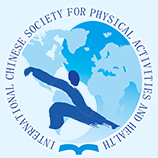Document Type
Abstract
Keywords
physical literacy, social support, physical activity, adolescents
Publication Date
2-2024
Abstract
Purpose: Levels of physical activity in children have gradually declined from elementary to high school. This trend necessitates a greater need of perceived physical literacy (PPL) to achieve a healthy lifestyle. Because social supports for physical confidence (PC) and understanding (PU) are key to nursing PPL, this study investigated effects of perceived family support (PFS), perceived physical education support (PPES), and perceived community support (PCS) on PPL among a group of Chinese adolescents. Methods: The study was based on a retrospective investigation. A total of 3820 participants completed self-reported questionnaires assessing PFS, PPES, PCS. PPL was assessed by an eight-item questionnaire consisting of two domains, PC and PU. Two hypothesized models were tested using SEM. Model-A examines effects of perceived supports on PC with PU as a mediator, and model-B tests effects of perceived supports on PU with PC as the mediator. To account for their influence on all latent constructs and indicators, both models considered gender, and healthy status as covariates. Results: Results of both models were significant for the hypothesized paths and standardized beta coefficients, but the model-A indicated a better fit to the observed data, ��2/1392= 2329.51, p < 0.05, CFI = 0.96, RMSEA =0.069, SRMR=0.05 after adjusting for participant’s gender and health status. Model-A showed that (a) the contributing predicators for PC are PFS, PPES and PCS (β = 0.17, p < 0.01; β = 0.12, p < 0.01; β =0.05, p < 0.01); (b) the direct effect of PU on PC was significant (β = 0.49, p < 0.01), and (c) PFS, PPES and PCS had significant indirect effects on PC through PU. Conclusion: according to the literature, improving students’ PPL may provide an alternative solution to reduced physical activity levels. Based on this study, PPL can be promoted by providing continued family support, reinforcing pedagogical rigidity in curriculum and instruction, and supplying quality community support.
DOI
https://doi.org/10.18122/ijpah.3.1.43.boisestate
Recommended Citation
Bian, Junyi and Cork, Benjamin Colin
(2024)
"A159: Effects of Social Supports on Chinese Adolescent Perceived Physical Literacy,"
International Journal of Physical Activity and Health: Vol. 3:
Iss.
1, Article 43.
DOI: https://doi.org/10.18122/ijpah.3.1.43.boisestate
Available at:
https://scholarworks.boisestate.edu/ijpah/vol3/iss1/43
Included in
Exercise Science Commons, Health and Physical Education Commons, Public Health Commons, Sports Studies Commons


